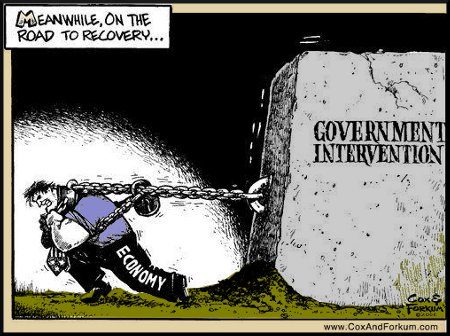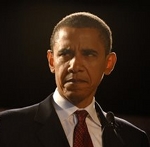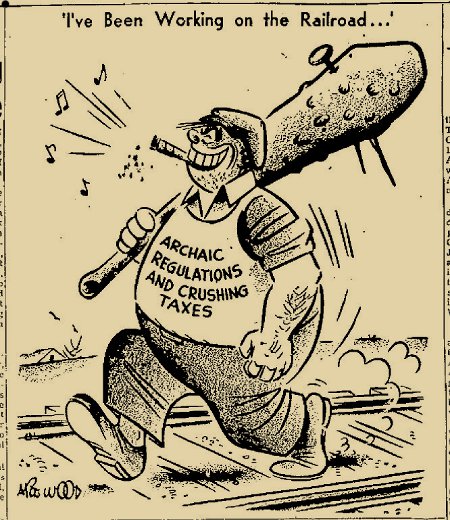Road To Recovery
The American economy, bogged down in an extended recession, is not walking swiftly down the road to recovery. In point of fact, it seems to be trudging slowly and painfully down the road to recovery with only slow improvements and few jobs for the American people.
This is not surprising since American businesses and corporation are forced to drag the huge, dead weight of government intervention along with them down that road.

The Road To Recovery
One can argue that any specific piece of government intervention into the market is necessary. One cannot, however, rationally dispute that almost all forms of government regulation have a chilling effect upon the economy. One also cannot rationally argue that these prior restraints upon trade have a disproportionate negative effect during times of economic crisis such as America now finds itself in.
To make matters worse, most occurrences of government intervention into the private sphere are politically motivated and the laws, regulations, and “fixes” are neither straightforward or equitable. They are instead laden with handouts to the politicians’ backers and supporters.
It comes down to one’s priorities. If one wants the economy to recover more quickly and robustly, one has to free it from the shackles of government intervention. If one wants to favor other interests or to have a slower growing, managed economy – paying the price in the loss of “booms” in order to avoid “busts” – one can continue on in the manner of the current regime.
Tags: America | Corporations | Economy | Employment | Freedom | Jobs | Oversight | Politics | Recession | Regulation | Unemployment


 Dr. Sam Peltzman, a renowned professor of economics from the University of Chicago Business School, espoused a hypothesis which became known as the Peltzman Effect. It dealt with the unintended, negative, and contrariwise effects of safety regulations.
Dr. Sam Peltzman, a renowned professor of economics from the University of Chicago Business School, espoused a hypothesis which became known as the Peltzman Effect. It dealt with the unintended, negative, and contrariwise effects of safety regulations.
